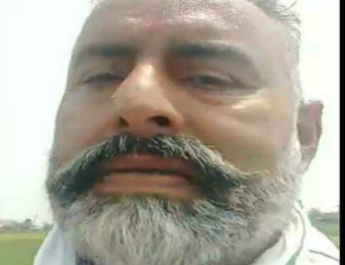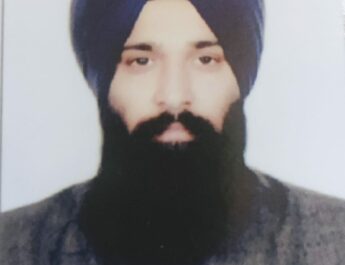From Our Bureau
NEW DELHI: The Gujarat goernment has told the Supreme Court that freedom of religion does not include rigth to convert, urging it to vacate the High Court stay on the provision of a state law that mandates prior permission of the district magistrate if a person chooses to convert his religion before marriage.
The Gujarat high court had through its orders dated August 19 and August 26, 2021 stayed the operation of section 5 of the state government’s Freedom of Religion Act, 2003.
In its affidavit submitted in response to a PIL by advocate Ashwini Upadhyay, the state government said it has filed an application seeking the HC stay be revoked so that the provisions to prohibit religious conversions in Gujarat by force, allurement, or fraudulent means be implemented.
“It is submitted that the right to freedom of religion does not include a fundamental right to convert other people to a particular religion. The said right certainly does not include the right to convert an individual through fraud, deception, coercion, allurement or other such means,” it said.
The state government said the meaning and purport of the word ‘propagate’ in Article 25 of the Constitution was debated in great detail in the constituent assembly, and its inclusion was passed only after the clarification that the fundamental right under Article 25 would not include the right to convert.
It said the constitutionality of Madhya Pradesh Dharma Swatantraya Adhiniyam, 1968 and the Orissa Freedom of Religion Act, 1967 which are pertinently pari materia (on the same subject) with Gujarat Freedom of Religion Act, 2003, was challenged before a constitution bench in 1977.
“This Court had held that fraudulent or induced conversion impinges upon the right to freedom of conscience of an individual apart from hampering public order and, therefore, the State was well within its power to regulate/restrict the same.”
“It is, therefore, submitted that the enactments like Gujarat Freedom of Religion Act, 2003, which seeks to control and curb the menace of organized, sophisticated large scale illegal conversions in the State of Gujarat have been upheld to be valid by this Court,” the state government said.
It added that the high court while passing the orders had failed to appreciate that by staying the operation of section 5 of the Act of 2003, the whole purpose of the Act effectively stands frustrated.
It said the constitutionality of Madhya Pradesh Dharma Swatantraya Adhiniyam, 1968 and the Orissa Freedom of Religion Act, 1967 which are pertinently pari materia (on the same subject) with Gujarat Freedom of Religion Act, 2003, was challenged before a constitution bench in 1977.
“This Court had held that fraudulent or induced conversion impinges upon the right to freedom of conscience of an individual apart from hampering public order and, therefore, the State was well within its power to regulate/restrict the same.”
“It is, therefore, submitted that the enactments like Gujarat Freedom of Religion Act, 2003, which seeks to control and curb the menace of organized, sophisticated large scale illegal conversions in the State of Gujarat have been upheld to be valid by this Court,” the state government said.
It added that the high court while passing the orders had failed to appreciate that by staying the operation of section 5 of the Act of 2003, the whole purpose of the Act effectively stands frustrated.
On November 14, the top court said that forced religious conversion may pose a danger to national security and impinges on the religious freedom of citizens.
It had asked the Centre to step in and make sincere efforts to tackle the “very serious” issue.
The court had warned a “very difficult situation” will emerge if proselytisation through deception, allurement and intimidation is not stopped.
“The issue with respect to the alleged conversion of religion, if it is found to be correct and true, is a very serious issue which may ultimately affect the security of the nation as well as the freedom of religion and conscience of the citizens.”
“Therefore, it is better that the Union government may make their stand clear and file counter on what steps can be taken by Union and/or others to curb such forced conversion, maybe by force, allurement or fraudulent means,” the top court had said in its order.
It had asked solicitor general Tushar Mehta to enumerate measures to curb the practice.
In his PIL, Upadhyay has sought direction to the Centre and states to take stringent steps to control fraudulent religious conversion by “intimidation, threatening, deceivingly luring through gifts and monetary benefits.”
The top court had on September 23 sought responses from the Centre and others to the plea.




